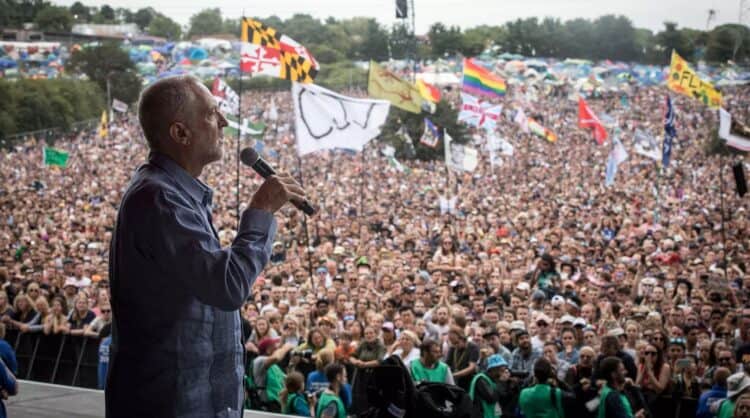In 2017, Jeremy Corbyn, the then-leader of the UK’s Labour Party, came within just a few thousand votes of becoming the country’s Prime Minister. Despite predictions of a Conservative Party landslide, Corbyn’s energetic and passionate campaign managed to galvanize a previously disengaged electorate, and brought the Labour Party closer to government than it had been in years.
To put Corbyn’s performance into context, it’s worth comparing his vote share to those of previous Labour leaders. In the 2017 general election, Labour won 40% of the popular vote, up from just 30% in the 2015 election. This was the largest increase in the party’s vote share since the 1945 election, which was won by Clement Attlee.
In comparison, Ed Miliband, the leader of the Labour Party in the 2015 general election, won just 30% of the popular vote. This was a significant drop from the 36% won by the party in the previous election, and was seen as a major disappointment for Labour.
Similarly, in the 2010 general election, the last to be contested by Gordon Brown as Labour leader, the party won just 29% of the popular vote. This was the lowest share of the vote received by the party since 1918, and led to the formation of a Conservative-Liberal Democrat coalition government.
Corbyn’s strong showing in the 2017 election was largely due to his appeal to younger voters, who had previously been seen as disengaged from politics. His manifesto, which included promises to abolish tuition fees and increase spending on public services, resonated strongly with this demographic.
However, despite this surge in support, the Labour Party fell just short of winning a majority in Parliament, with the Conservative Party remaining the largest party. This was partly due to the party’s relatively poor performance in key swing seats, which were won by the Conservatives with small majorities.
Despite this disappointment, Jeremy Corbyn’s performance in the 2017 election is widely seen as a significant achievement for the Labour Party. It showed that there was a hunger for change among the British public, and demonstrated that a left-wing platform could be electorally successful.
Jeremy Corbyn’s strong showing in the 2017 general election was a significant achievement for the Labour Party. Despite falling just short of winning a majority, Corbyn’s campaign energized and mobilized a previously disengaged electorate, and brought the party closer to government than it had been in years. In comparison to previous Labour leaders, his vote share was a significant improvement and a sign of the appetite for change among the British public.
You may also like: The Top 10 Karl Marx Quotes That Still Resonate Today







